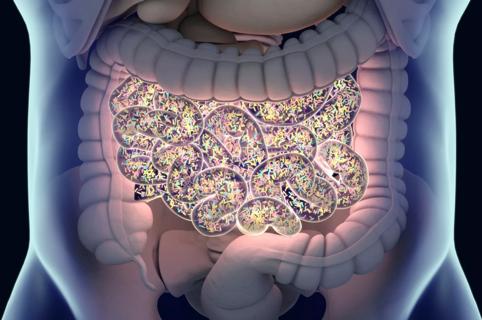Fostering collaboration between basic, translational scientists and clinicians

Cleveland Clinic has formed a new Center for Genitourinary (GU) Malignancies Research that will focus on advancing discoveries to better understand, diagnose and treat cancer of the prostate, bladder and kidney.
Advertisement
Cleveland Clinic is a non-profit academic medical center. Advertising on our site helps support our mission. We do not endorse non-Cleveland Clinic products or services. Policy
The center will be a cross-institute partnership with members from Cleveland Clinic’s Lerner Research Institute, Taussig Cancer Institute and Glickman Urological & Kidney Institute to leverage clinical strengths and a varied patient population for translational and clinical studies.
The center will be led by Nima Sharifi, MD, who holds appointments in all three institutes. He co-directs Cleveland Clinic’s Center of Excellence in Prostate Cancer Research with Eric Klein, MD, Chair of the Glickman Urological & Kidney Institute, and directs the GU program of the Cleveland-wide Case Comprehensive Cancer Center. He also holds the Kendrick Family Endowed Chair for Prostate Cancer Research.
Initial members of the center include physicians and scientists across Cleveland Clinic. A search is underway to recruit top scientists in the field.
“We hope to attract additional leading urology and cancer researchers who will help bring discoveries to our patients,” says Dr. Klein.
“By recruiting new physician-scientists and scientists, we aim to complement existing strengths that we have in the discovery of prostate cancer hormone therapy resistance mechanisms and translating these findings to the clinic,” Dr. Sharifi continues.
“Additionally, we have expertise in the epigenetics of prostate and bladder cancer that we plan to expand and complement,” he says. “Finally, we plan to recruit investigators with expertise to explore new areas of kidney cancer science. All of these areas of growth are in clinical spaces in which we have physicians who deliver world class clinical care at Cleveland Clinic.”
Advertisement
Dr. Sharifi is an expert in cancer endocrinology and metabolism, especially in prostate cancer. He has published landmark studies linking a specific genetic variant to a deadly form of advanced prostate cancer (see references below). The work has won him numerous awards, including the national Top 10 Clinical Achievement Award from the Clinical Research Forum. He is a member of the Association of American Physicians and was recently elected a fellow of the American Association for the Advancement of Science.
“Our overarching goal is to make practice-changing discoveries in GU cancer,” Dr. Sharifi explains. “Combining the expertise of our medical oncologists, urologists, pathologists and radiation oncologists with disease-focused basic scientists will help us to rapidly bring transformative changes to clinical practice at Cleveland Clinic and around the world.”
GU cancers are prevalent around the world, and prostate cancer is the leading cause of cancer in American men. “The center will help streamline and focus our clinical and research efforts in GU malignancies,” says Brian Bolwell, MD, Chair, Taussig Cancer Institute.
“By bolstering our research in this area, we hope to also shine a light on the need to better understand these diseases,” adds Serpil Erzurum, MD, Chair, Lerner Research Institute.
Stan Gerson, MD, Director, Case Comprehensive Cancer Center, says this research expansion solidifies the remarkable accomplishments of investigators focused on GU malignancies. “This center will further link diseased-based research to the critical questions of prognosis and treatment decisions that impact patients’ lives,” Dr. Gerson says.
Advertisement
Advertisement
Advertisement

First full characterization of kidney microbiome unlocks potential to prevent kidney stones

Researchers identify potential path to retaining chemo sensitivity

Large-scale joint study links elevated TMAO blood levels and chronic kidney disease risk over time

Investigators are developing a deep learning model to predict health outcomes in ICUs.

Preclinical work promises large-scale data with minimal bias to inform development of clinical tests

Cleveland Clinic researchers pursue answers on basic science and clinical fronts

Study suggests sex-specific pathways show potential for sex-specific therapeutic approaches

Cleveland Clinic launches Quantum Innovation Catalyzer Program to help start-up companies access advanced research technology